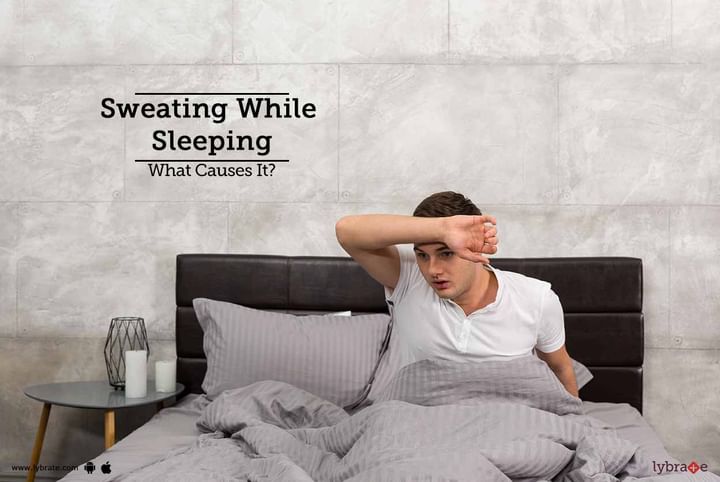Get the App
For Doctors
Login/Sign-up
Last Updated: Sep 29, 2020
BookMark
Report
Sweating While Sleeping - What Causes It?
Sweating during warm weather is very common, but if a person wakes up from bed soaked in sweat, it is not a pleasant feeling. It does not allow for a sound sleep, and may not always be related to warm weather.
There is no serious underlying medical issue, but it is always advisable to see a doctor to get this corrected. The following are some common reasons that could lead to night sweats.
- Menopause: The hot flashes that are so popularly associated with menopause is one of the main reasons for night sweats. The presenting factors (woman, age and other symptoms) should help arrive at this diagnosis. Hormonal levels can be checked to confirm if required. Even puberty and pregnancy can cause night sweats, due to hormonal level alterations.
- Infections: Most infections present with fever and night sweats are very common. Tuberculosis, osteomyelitis, endocarditis, influenza and even HIV can cause night sweats and hamper a person’s sleep. Most infections cause an increase in temperature, which is worse at night.
- Obstructive sleep apnea: The walls of the windpipe get narrowed, and the person might have short periods where the breathing just stops. These people are three times more likely to develop night sweats.
- Hypoglycemia: One of the most common symptoms of low blood sugar is night sweat. When the sugar drop happens during the time the person is sleeping, it is very common for the person to wake up soaked in sweat.
- Cancer: For some cancers, night sweats are one of the first warning signs. These cancers include lymphoma, and presence of symptoms like unexplained weight loss, fatigue, etc. should be addressed to rule out the possibility of cancer.
- Side effect of medications: Antidepressants, psychiatric drugs, anti-pyretic drugs, anti-virals, steroids, anti-diabetic medications, hormones, etc. can lead to night sweats. Suspected cases of night sweats should have their medications reviewed to see if any drug is causing the night sweats.
- Gastro-esophageal reflux disease: GERD, as it is popularly known, can cause night sweats in addition to heartburn. They would also have other symptoms of indigestion, which will help in identifying the problem.
- Neurologic disorders: Stroke, neuropathy and anxiety disorders can cause night sweats and would require psychotherapy in addition to medications.
- Idiopathic: And despite all these possible reasons, if there is no identifiable reason, it is known as idiopathic hyperhidrosis (increased sweating). The person produces too much sweat without any known underlying cause and can even wake up at night soaked in sweat.
Management: Identifying the underlying cause is the first step in treatment. It may require hormonal corrections, changing or withdrawing the causative medications, treating associated conditions, etc., as the case may be.



+1.svg)
